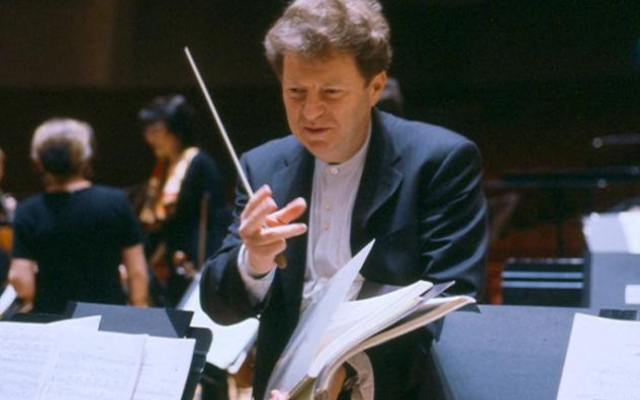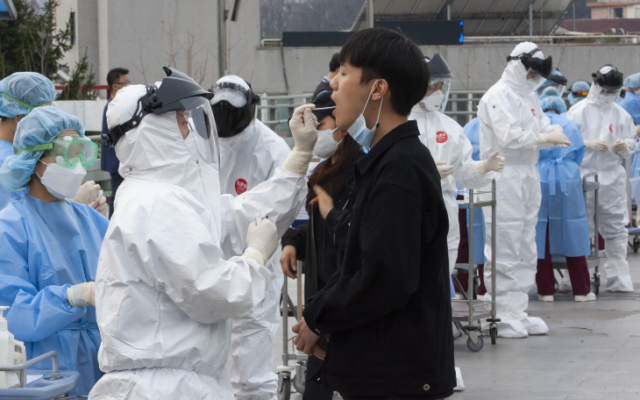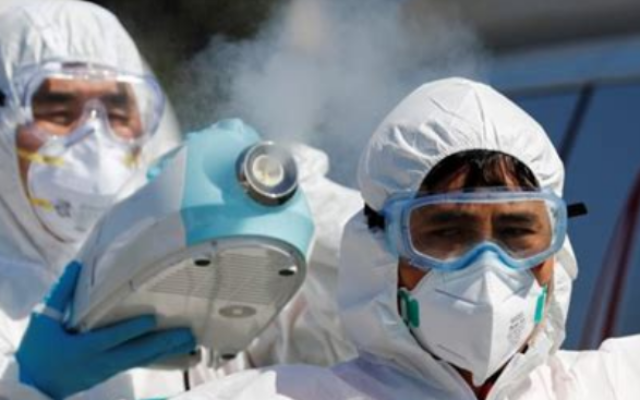Yoel Levi Praises South Korea’s Control of COVID-19
Former Atlanta Symphony Orchestra conductor says strict program of monitoring population is working.

When Yoel Levi stepped on his Korean Air flight to Seoul last month, the cabin crew he saw made him feel like he was stepping into another world.
“It was like taking a spacecraft because all the crew were wearing, on top of their normal dress, plastic gowns like a surgeon and masks covered in plastic, with special glasses over that, and they kept that on for the entire flight, for 14 hours.”
Levi, the former principal conductor of the Atlanta Symphony who still lives here, kept his mask on all that time as well, except to eat. He was flying to the Asian nation to conduct the Korean symphony orchestra he had led in recent years.
The initial contact with the strict COVID-19 restrictions on the flight was just part of a nearly monthlong ordeal in a country that is among the most successful in controlling the spread of the pandemic.
As of Oct. 12, Korea has reported only about 25,000 cases of the COVID-19 disease and only 433 deaths, according to the Worldometer database. That’s slightly less than Cobb County, which, as of the same date, reported 442 deaths and over 20,000 cases. The difference is that the Atlanta suburb, according to official estimates, has only about 688,000 residents while South Korea, with the fourth largest economy in Asia, has a population of over 51 million. That’s 74 times the population of Cobb.

The reason for South Korea’s more favorable situation, in part, is because of the severe restrictions the residents there live under and the relentless use of technology the government uses to track each and every infection.
When Levi arrived in South Korea, his cell phone was immediately handed over to immigration authorities.
“They install an application in your phone that tracks your movement minute-by-minute while you are in the country. Everyone in the country who has a cell phone must have that app. It tracks you constantly and who you might have been in contact with and who might have tested positive for the virus. “
It was just the first step in a two-week process of control and quarantine for every person on the flight. All of them were assigned to a special hotel that been set aside just for arriving travelers, Levi said.
“You are given a COVID test immediately; they take your temperature. For two weeks you are not allowed to leave your hotel room. Your meals are brought to your door. If you disobey, they fine you thousands of dollars and throw you out of the country.”
Once the quarantine is over and you are not infected, airline passengers are allowed to travel around the country freely, shadowed at all times by the app, which the government continuously monitors. A mask had to be worn at all times, but according to Levi, life is outwardly normal.
“Everyone there in the offices are working. The traffic jams are enormous. The streets are filled.”

In South Korea, the government has taken pride in its effort to be transparent and open. Reporters are briefed twice a day on the complete details of each new patient’s contacts over previous days and weeks, which allows individuals to avoid areas of possible infection.
According to a poll released by the Wellcome Trust, an impressive 86 percent of the public say they trust the government’s health advice and follow it.
That’s in sharp contrast to attitudes in Israel where Levi grew up. On Oct. 12 the nation of just over 9 million reported its 2,000th coronavirus death. Levi, who has been the guest conductor of the Israel Philharmonic Orchestra, is critical of his country’s response to the disease.
“The country is in chaos. The leadership is in chaos. The religious people are in chaos. It started with people who are not willing, not disciplined at all. That’s crazy. And they’re paying the price.”
Eventually Levi completed his concert in South Korea, but not before a live audience as originally planned. The program was recorded in an empty concert hall and posted online.
Few countries have been willing to accept the amount of control the South Korean government has exerted over its citizens during this crisis, but for Levi, like it or not, the country’s program seems to be working.
“People are very worried there. They really take the necessary measures. Yes, they take it very seriously. The results speak for themselves. They cannot be denied. Maybe they’re a little bit exaggerated. But you know what? South Korea is doing very well.”



comments